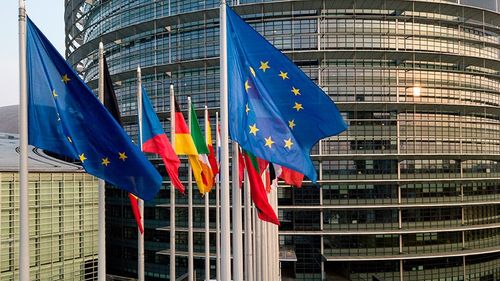The European Union (EU) parliament overwhelmingly voted in support of the new comprehensive crypto assets regulation on Thursday. MiCA (Markets in Crypto Assets) is a set of rules under the EU digital finance package that covers various aspects such as anti-money laundering, financial services innovation, and the digital euro. EU lawmakers say that new regulations on cryptocurrency in the region will bring an end to the industry's "wild west" era and restore trust.
These rules will require crypto-related businesses to adhere to stricter standards to eliminate fraudulent investment schemes, criminal activities, and business failures that may destabilize traditional financial systems. The new rules apply to crypto businesses operating within the EU, including exchange operators, custodians, and marketing/advisory services.
Under the MiCA regulations, crypto companies must register with a financial regulator in at least one EU member state, subjecting them to European Banking Authority and the European Securities and Markets Authority supervision. These watchdogs will ensure that companies have appropriate risk management and corporate governance. Stablecoin issuers, which aim to maintain a 1:1 peg to a less volatile asset like the US dollar, will be required to back up their value with sufficient reserves. Non-euro currency pegged stablecoins will face a daily cap of €200 million ($220 million) on trading volume within the EU under certain criteria. Additionally, crypto companies must comply with the EU's transfer of funds regulation, meaning companies must provide information on the senders and recipients of crypto assets to their local anti-money laundering authority.
Source: The EU's new MiCA framework for crypto-assets - the one regulation to rule them all
Needless to say that many crypto managers are unhappy about the requirement in MiCA for users to provide identifying information for anti-money laundering authorities on every transaction. Also, the cap on trading volume could be a deterrent. However, many acknowledge that having some rules is better than having none. MiCA provides a relatively straightforward route to registration and offers boundaries to operate within, which contrasts with the United States, with its lack of clear guidelines and regulations.
Another vector of criticism is that the rules in this revision are outdated already and don't go far enough. For example, MiCA covers exchange operators, custody providers, and marketing and advisory services but does not address crypto staking or lending, nonfungible tokens, or decentralized finance.
The final version of the rules is set to be released by the end of June. However, the implementation of the rules will be phased in gradually to allow the industry to adapt. The provisions related to stablecoins will start in July 2024, while the general rules concerning crypto asset service providers will take effect in January 2025.
For those interested, here you can find an excellent detailed analysis of the new MiCA framework from Circle's @paddi_hansen.

